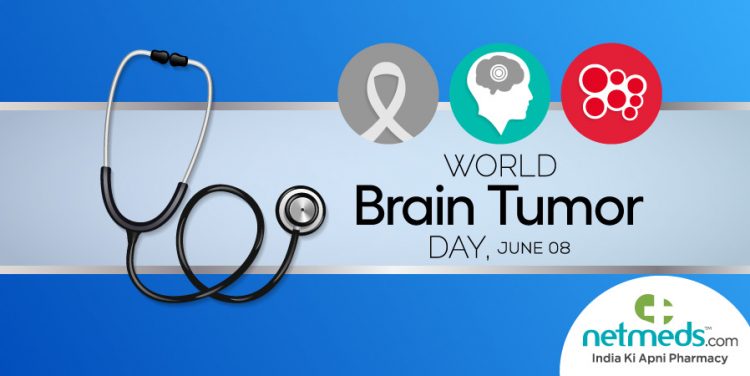World Brain Tumour Day is observed on June 8 annually across the globe to spread awareness and educate the populace about this neurological ailment. This health day honours the patients affected by a brain tumour and their caregivers. The health event was first initiated in the year 2000 by the German brain tumour association. Additionally, World Brain Tumour Day intends to empower knowledge and improve strategies to support and augment the voice of the brain tumour community.
Our brain is the driving force of the system; thus, any health condition or abnormality of the brain should not be ignored. This year’s theme is “Together We Are Stronger”, so let us work hard as a community to combat this deadly ailment. The key measures include awareness, early detection, right treatment, and adequate follow-up treatment is essential for survival with brain tumours.
Shop From Our Wide Array Of Nutritional Supplements To Optimise Your Health, Right Here!
Also Read: World Brain Tumour Day 2020: Understand The Risk Factors
Prevalence Of Brain Tumour In India
The occurrence of brain tumours in India is slowly peaking and more cases of brain tumours are recorded every year among people of different age groups. As per reports, brain tumours were ranked as the 10th most common type of cancer among Indians. The International Association of Cancer Registries (IARC) states that there are around 28000 cases of brain cancer reported in India every year and alarmingly 24000 people die due to brain tumours annually. A brain tumour is a severe health condition and can be fatal if detected and treated late.
Brain Tumour Burden
Brain tumours are either benign (non-cancerous) or malignant (cancerous). This type of cancer falls into the same category as central nervous system (CNS) cancers. Globally around 330,000 children and adults were diagnosed with cancer of the Central Nervous System in a year and the number continues to rise along with the increasing mortality rate of brain tumours. In India, CNS cancer ranges from 5 to 10 per 100,000 people with a rising trend and accounts for 2% of cancer.
Also Read: World Brain Tumour Day: 6 Common Myths Debunked
Manifestation of a brain tumour may be nonspecific and include recurrent headaches, seizures, blurred vision problems, memory loss, weakness, speech deficit, mood and behavioural changes, and loss of consciousness. Sudden onset seizures in adults or a headache related to weakness or numbness of the limbs typically indicate a brain tumour.
Most brain tumours present with nonspecific complaints, early diagnosis aids in better management and treatment in the starting stage of the disease. Yes, the key is prompt detection, as with most types of cancer. Diagnosis is supported by imaging modalities such as neurological examination, CT or MRI scans, X-rays, biopsy, and cerebrospinal fluid analysis (CSF). Treatment includes maximal surgical resection, and few cases radiotherapy and oral chemotherapy are given.
Road To Recovery After Brain Surgery
The recovery period depends on several factors, including:
- Kind and nature of brain surgery
- Complications associated with surgery
- Severity of incisions
- Age and health status of the patient, including other medical problems
- Post-operative treatment like radiation may induce some side effects
It’s essential to have regular follow-ups with the doctor post-surgery to stay healthy, no matter what type of brain tumour you have been diagnosed with. Many types of brain tumours have the possibility of relapse; so, the doctor will recommend an appropriate monitoring schedule based on the specific requirements of the patient.
Facts
- Brain tumours may develop at any age
- Astrocytoma, meningioma, and oligodendroglioma are the most common type of primary brain tumours among adults
- Medulloblastoma, grade I or grade II astrocytoma, ependymoma and brain stem glioma are common among children
- The five-year survival rate for all malignant brain tumour patients is 36% and the 10- years survival rate is 31%
- A brain tumour is the 10th main cause of mortality that accounts for 85 to 90% of all central nervous system tumours
- More than any other cancer, brain tumours have long-lasting and life-changing impacts such as physical, cognitive, and psychological effects on a patient’s life.
- A primary brain tumour is mainly restricted to the brain and does not spread to other organs. If brain death happens in these patients, their organs can be donated
Source by www.netmeds.com




